Listening and responding
Respectful engagement with local communities is critical to the success of projects and long-term operations. We need to understand the priorities and address the concerns or grievances people may have.
We have implemented community feedback mechanisms at all of our operations and projects to receive, track and respond to questions and complaints from community members. This enables us to capture and resolve concerns quickly in a transparent way, and to track our performance.
In South Korea, for example, the local community was concerned about noise levels from the construction of the Prelude floating LNG plant. Shell responded by installing industrial silencers to reduce disturbance from the shipyard.
Total complaints received in 2016
Enlarge image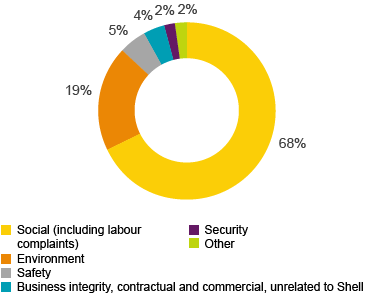
The large Rhineland refinery in Germany is situated close to urban areas. Before the construction of a rail-loading facility, the refinery consulted with communities living next to the railway track. Initially, more than 400 people raised concerns mainly about noise from the additional transport. As a result of the engagement, Shell decided to use a fleet of low-noise freight wagons with silent brakes. The solution was accepted by the community and supported by the municipality. In September 2016, construction was completed without further complaints from the community.
Community feedback in 2016
Shell uses data from our community feedback mechanisms as a performance indicator at both the local community and global levels. Community complaints are registered in different categories to identify common issues across Shell and share knowledge on how they were resolved.
Complaints are recorded and consolidated on a quarterly basis to track performance of complaint management in a timely manner. In 2016, the profile of complaints was consistent with the previous three years, in which the largest number of complaints received related to social and environmental issues. Concerns about local job opportunities, allocation of benefits from social investment and the impact of our operations on people’s land, property or livelihoods comprise most of the social issues. Most environmental complaints are related to nuisances, such as noise, odours or dust.
Social complaints received in 2016
Enlarge image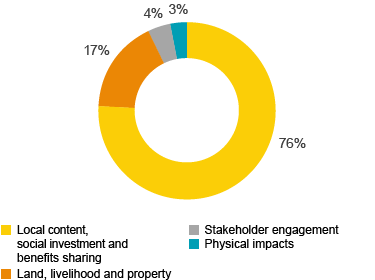
Environmental complaints received in 2016
Enlarge image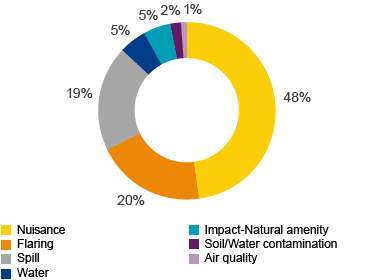
Resettlement
Our operations sometimes require temporary or permanent access to areas of land or sea where people are living or working. Where resettlement is unavoidable, we work with local communities to help them relocate and maintain, or improve, their standard of living. If necessary, we support them as they establish alternative livelihoods.
As a result of the acquisition of BG, Shell became joint operator of Karachaganak Petroleum Operating BV (KPO, Shell interest 29.25%) in north-west Kazakhstan. In 2015, the government approved an expansion of the safety perimeter around the Karachaganak field, which required two villages to relocate. Led by the regional government and funded by KPO, around 1,850 people from these villages were resettled in line with international best practice.
In late 2015, the first 82 households were successfully resettled to new housing and compensated for moving costs and loss of assets. In the second phase of resettlement, we are working with the government to ensure that the remaining 373 households from the village of Berezovka have comparable or better housing and that their livelihoods are restored. Shell has funded the construction of a new school and kindergarten where half the places are available to local residents. We continue to consult with affected people, local leaders and representatives to ensure they thrive in their new location.
Indigenous peoples
Our activities in certain parts of the world affect indigenous peoples who hold specific rights for the protection of their culture, traditional way of life and special connections to lands and waters.
In line with Shell’s General Business Principles, and in support of the UN Declaration on the Rights of Indigenous Peoples, our approach is to continue seeking the support and agreement of indigenous peoples potentially affected by our projects. We do this through mutually agreed, transparent and culturally appropriate consultation and impact management processes. It requires open dialogue, good faith negotiations, and, where appropriate, the development of agreements that address the needs of indigenous peoples.
We recognise the principle of free, prior and informed consent, as interpreted by the International Finance Corporation Performance Standards, as a safeguard for indigenous peoples’ rights. We believe our approach is consistent with the application of this principle, while respecting the laws of the jurisdictions in which we operate.
For example, in Russia’s Far East Sakhalin Island, Sakhalin Energy (Shell interest, 27.5% minus one share) signed its third Sakhalin Indigenous Minorities Development Plan (SIMDP) for 2016 −2020. Under the plan, decision-making about the selection of projects to support economic and social development involves elected indigenous representatives. The plan is implemented in partnership with the Sakhalin regional government and the Regional Council of Indigenous Peoples. Over the past decade, more than 500 projects have been developed and approved for implementation under the plan, such as wood carving workshops and fishing schools.
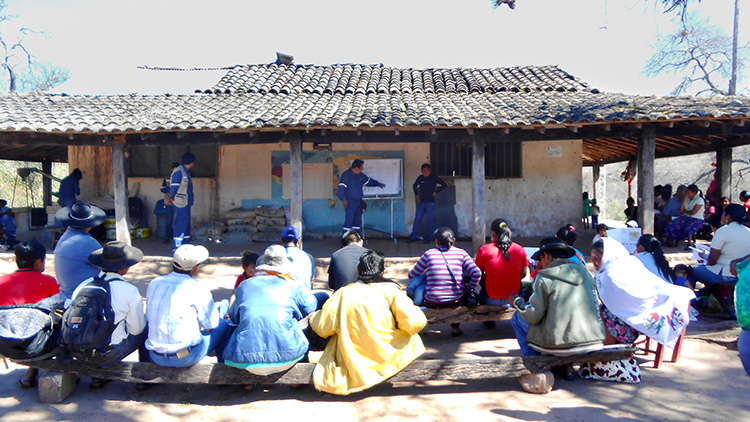
Shell teams hold an open house with community members in Huacareta as part of a social project in Bolivia.
In 2014, Bolivia changed compensation for new hydrocarbon projects on collective indigenous land and farmland. This meant that a fixed percentage of the cost of the activity should be invested in social programmes. Previously, regulations required companies to compensate through cash payments. The following year, the then BG campaign to explore for oil and gas in the Huacareta area was the first project to apply this new regulation. Initially, local communities had opposed the move away from cash compensation. Over the past two years, the local Shell team has worked to establish a relationship with these communities and identify and implement social projects that meet community needs and objectives. These programmes focused on technical assistance for agriculture and livestock improvement. Shell is in the process of obtaining the environmental licence to launch the new phase of exploration in Bolivia, which is expected to begin in 2017.
Cultural heritage
Cultural heritage can be represented in tangible form, such as treasured artefacts, or as intangible attributes, such as language and traditions. It may have great value for past, present and future generations. Our specialists work to preserve cultural heritage near our operations.
Shell is the operator of the Majnoon oil and gas field in Iraq. The field is the site of rich cultural heritage due to its proximity to an area considered the cradle of civilisation. In 2016, Shell – in consultation with the Ministry of Antiquities – identified two additional archaeological sites to the 10 previously identified. All sites are recorded in Shell’s geographic information system. In 2017, they will be formally registered with the Ministry of Antiquities and artefacts will be handed over to the Basra Museum.
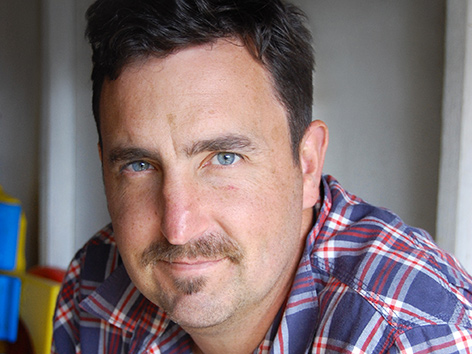
“Protecting cultural heritage is the right thing to do”
Internal opinion
“The cultural heritage resources of Majnoon in Iraq and the surrounding marshes provide an interesting chapter in the human story. It was here in southern Mesopotamia that humanity witnessed a marked rise in social complexity that led to the development of cities, social classes, writing and craft specialisation. Our archaeological work at Majnoon aims to uphold Shell’s commitment to social performance by integrating the protection of cultural heritage into the development of one of the world’s largest oil fields. We were hired to bring global expertise in cultural heritage management. We work to follow international best practice under the International Financial Corporation’s Performance Standards for cultural heritage because the protection of cultural heritage is the responsible and right thing to do.”
Matthew Whincop
Whincop Archaeology PTY Ltd., Director, Australia
